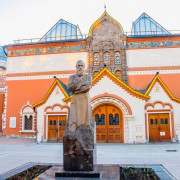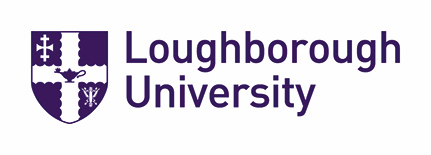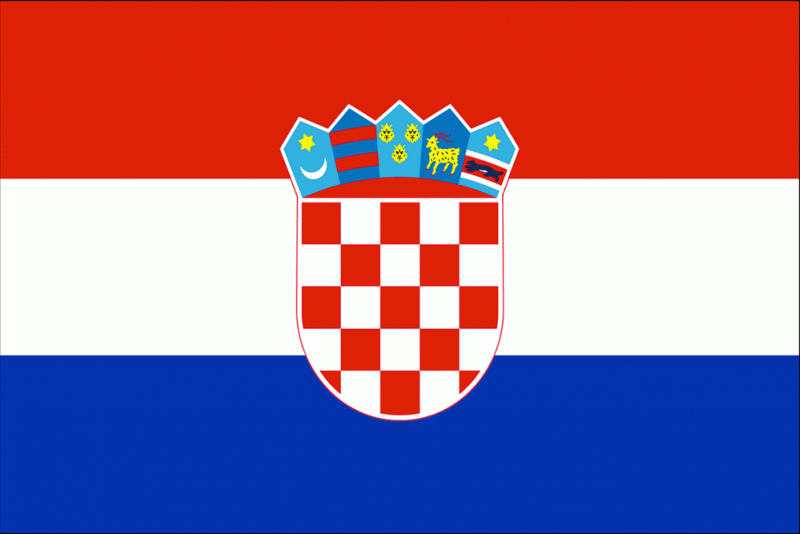Как разобраться в понятиях a.d., b.d., m.d., phd?
Содержание:
- Степень ассоциата — Associate’s degree
- Master’s degrees
- Most Common Online Master Degrees Awarded
- Ученые степени в Канаде
- Хорошо, а как перевести специализацию?
- Степень магистра или Master Degree
- Finding Accredited Online Master Degree Programs
- ITMO University International Master’s program offers:
- Путаница начинается с систем образования
- Try a MicroMasters Program
- What is the Best Master’s Degree To Get?
- Why study for a master’s degree?
Степень ассоциата — Associate’s degree
Степень АссоциатаAssociate’s degreeСШАГонконгаЮжной КореиАвстралииКанадыНидерландовмуниципальных колледжахtwo-yearcommunity collegesAssociate’s degree
- Сэкономить на обучении в вузе в течение первых двух лет обучения, а затем перевестись в университет на третий курс бакалавриата;
- Облегчить поступление в престижный университет тем студентам, которые не набрали достаточного количества баллов по результатам SAT или другого вступительного экзамена сразу после школы;
- Подтянуть английский до уровня, необходимого для учебы в университете.
вузами СШАРазновидностиПримеры эквивалентов
- Великобритания: Foundation degree, Certificate of Higher Education (CertHE), Diploma of Higher Education (DipHE);
- Франция: French Diplôme Universitaire de Technologie (DUT), Brevet de Technicien Supérieur (BTS);
- Россия: диплом о среднем профессиональном образовании (колледж, техникум).
Foundation degree
Исключительно британская квалификация, в чем-то схожая с Associate’s degree. Эквивалентна двум годам обучения на бакалавриате, при этом объединяет академическое и профессиональное образование. Согласно Болонскому процессу, Foundation degree принадлежит группе программ short cycle, которые являются частью первого цикла или коррелируют с ним. Часто реализуются на таких направлениях, как педагогика, медицина, социальная работа, сестринское дело, спорт, туризм, транспорт, бизнес, менеджмент, сельское хозяйство, театральное искусство, дизайн.
Foundation degree:
- Дает доступ к трудоустройству по специальности;
- Позволяет продолжить обучение на 3 курсе бакалавриата (a top-up course) и получить степень бакалавра с отличием (Bachelor’s degree with honours) в том же или партнерском вузе.
Срок обучения — 2 года (full-time) или 4 года (part-time). Программы реализуются в колледжах и университетах. По статистике, 61,5% выпускников трудоустраиваются сразу после окончания программы, 55.9% отправляются за степенью бакалавра и всего 1.8 остаются безработными.
Разновидности: FDA, FDEd, FDEng, FDS.
Master’s degrees

Магистерские программы — это форма поствузовского образования, а не «досиживание до полноценного диплома», как в России. За границей на них поступают те, кто планирует связать свою жизнь с научной или преподавательской деятельностью. Сроки обучения отличаются. В Великобритании — один год. В США — от полутора до четырех лет, в зависимости от университета и специальности. Вот какие программы (и одноименные степени) популярнее всего:
1. Магистр искусств — Master of Arts (MA). Эту академическую степень можно получить на факультетах лингвистики, антропологии, философии, литературы, дизайна, политологии, социологии, психологии, теологии и так далее.
2. Магистр наук — Master of Science (MSc). Присваивается в сферах естественных и точных наук — астрономии, физике, биологии, химии, медицине, естествознании. И в технических областях, таких как машиностроение и сельское хозяйство.
3. Master of Business Administration (MBA). Это всего лишь магистр в сфере бизнес-администрирования. На таких программах углубленно изучают менеджмент, бизнес-анализ, финансовый учет. Во время пар вы будете разбирать кейсы реальных предприятий, пытаться их совершенствовать, а через какое-то время — предлагать свои решения с нуля.
Предпринимателям вкладывать деньги в MBA почти бессмысленно. Там не объяснят, как найти новые ниши и выжить в кризис, особенно в условиях российского рынка. Лучше всего такие курсы подходят сотрудникам транснациональных корпораций, потому что дают понимание стандартов и методов их работы, позволяют стать своим.
Most Common Online Master Degrees Awarded
There are many types of Master’s Degrees but some of the most common you may have heard of are; M.A., M.S., M.B.A., M.F.A., M.P.H., M.Ed., M.S.N. and M.S.W.
The online master’s degree is a “second-cycle” or postgraduate degree that is awarded to students who have demonstrated “mastery” in their academic field (according to BLS.gov). Within this tier of education, you can find different types of online master’s degree programs.
Learn more about these types of Master Degrees:
- Online Master of Arts (M.A.)
- Online Master of Science (M.S. or M.Sc.)
- Online Master of Business Administration (M.B.A.)
- Online Master of Fine Arts (M.F.A.)
- Online Master of Public Health (M.P.H.)
- Online Master of Education (M.Ed.)
- Online Master of Science in Nursing (M.S.N.)
- Online Master of Social Work (M.S.W.)
Many online master’s programs can actually be less expensive as traditional campus setting programs. Learn more about affordable online master degree programs here.
Ученые степени в Канаде
Учебные заведения Канады предлагают студентам следующие программы:
- Среднее специальное образование (1-3 года, с получением диплома или сертификата);
- Бакалавриат (3-4 года, с присвоением ученой степени бакалавра);
- Магистратура (1-3 года, с присвоением ученой степени магистра);
- Докторантура (не менее 3 лет, с присвоением ученой степени доктора).
Среднее специальное образование можно получить в Общественных Колледжах (Community Colleges) и Институтах (Institutes). В университетских колледжах (University Colleges) и университетах (Universities) можно получить степень бакалавра. Программы получения степени магистра и доктора наук в целом подобны американским.
Вот мы и рассмотрели разновидности учёных степеней в Северной Америке. С более подробной информацией и особенностями того или иного учебного заведения вы познакомитесь уже непосредственно после того, как определитесь с выбором профессии и конкретного учебного заведения.
Напоследок предлагаю посмотреть видео, где уже известный нам доктор Купер рассказывает о своих академических заслугах и степенях. Все степени смогли разобрать?
А еще мы публикуем много интересных статей в блоге нашей школы. Вот некоторые из них:
- Как учить английский язык по фильмам и сериалам
- Поиграем в английский: 7 лучших сайтов с обучающими играми
Хорошо, а как перевести специализацию?
В странах Европы и США, чтобы обозначить специализацию, например, зарубежного доктора экономики, говорят: Ph.D. in Economics. Эту грамматическую конструкцию можно использовать и при переводе российских специализаций – она не такая громоздкая и размытая, как Economic Sciences. Такой вариант перевода подойдет для научных журналов, брошюр и публицистики.
А к сокращенному варианту, Cand. Sc., можно просто добавить название специализации в скобках – или без, но вариант со скобками встречается чаще.
При переводе дипломов и официальных документов мы поступаем так же, как и с названием ученой степени: соблюдаем требования ведомств, которые занимаются нострификацией.
Примеры перевода научной степени «кандидат наук» на английский
| Оригинал | Английский перевод | ||
|---|---|---|---|
| Нетематическая публицистика | Тематические статьи, научные журналы, конференции | Дипломы, сертификаты, другие документы об образовании | |
| кандидат биологических наук | Ph.D. in Biology | Candidate of Sciences in Biology или Cand. Sc. (Biology) | Candidate of Biological Sciences |
| кандидат географических наук | Ph.D. in Geography | Candidate of Sciences in Geography или Cand. Sc. (Geography) | Candidate of Geographical Sciences |
| кандидат исторических наук | Ph.D. in History | Candidate of Sciences in History или Cand. Sc. (History) | Candidate of Historical Sciences |
| кандидат математических наук | Ph.D. in Mathematics | Candidate of Sciences in Mathematics или Cand. Sc. (Mathematics) | Candidate of Mathematical Sciences |
| кандидат медицинских наук | Ph.D. in Medicine | Candidate of Sciences in Medicine или Cand. Sc. (Medicine) | Candidate of Medical Sciences |
| кандидат педагогических наук | Ph.D. in Pedagogy | Candidate of Sciences in Pedagogy или Cand. Sc. (Pedagogy) | Candidate of Pedagogical Sciences |
| кандидат политических наук | Ph.D. in Politics | Candidate of Sciences in Politics или Cand. Sc. (Politics) | Candidate of Political Sciences |
| кандидат сельскохозяйственных наук | Ph.D. in Agriculture | Candidate of Sciences in Agriculture или Cand. Sc. (Agriculture) | Candidate of Agricultural Sciences |
| кандидат социологических наук | Ph.D. in Sociology | Candidate of Sciences in Sociology или Cand. Sc. (Sociology) | Candidate of Sociological Sciences |
| кандидат технических наук | Ph.D. in Technology | Candidate of Sciences in Technology или Cand. Sc. (Technology) | Candidate of Technical Sciences |
| кандидат филологических наук | Ph.D. in Philology | Candidate of Sciences in Philology или Cand. Sc. (Philology) | Candidate of Philological Sciences |
| кандидат философских наук | Ph.D. in Philosophy | Candidate of Sciences in Philosophy или Cand. Sc. (Philosophy) | Candidate of Philosophical Sciences |
| кандидат химических наук | Ph.D. in Chemistry | Candidate of Sciences in Chemistry или Cand. Sc. (Technology) | Candidate of Chemical Sciences |
| кандидат экономических наук | Ph.D. in Economics | Candidate of Sciences in Economics или Cand. Sc. (Economics) | Candidate of Economic Sciences |
| кандидат юридических наук | Ph.D. in Jurisprudence | Candidate of Sciences in Jurisprudence или Cand. Sc. (Jurisprudence) | Candidate of Legal Sciences |
Бонус — соискатель степени кандидата наук по-английски
| Оригинал | Английский перевод | ||
|---|---|---|---|
| Нетематическая публицистика | Тематические статьи, научные журналы, конференции | Дипломы, сертификаты, другие документы об образовании | |
| соискатель степени кандидата наук | Doctoral student | Candidate of Sciences degree seeking applicant Cand. Sc. degree seeking applicant | Candidate of Sciences degree seeking applicant |
Степень магистра или Master Degree
Вторая по популярности образовательная степень после бакалавра. Возможно, была бы и самой популярной, если бы не ставила во главу одно простое правило: стать ее лауреатом можно только после окончания учебного курса бакалавриата. Многим выпускникам для работы по специальности, как они считают, вполне достаточно и степени бакалавра, поэтому получать магистерское звание сразу они не спешат, а то и вовсе решают больше никогда не учиться.
Однако согласитесь, что 2 года в магистратуре (а именно столько в подавляющем количестве случаев длится обучение на этой образовательной ступени), где вам предоставят только самые полезные знания, с которыми потом можно смело идти работать и не бояться за свое будущее, явно не будут лишними. В магистратуру стоит поступать еще и потому, что начальная ставка заработной платы у ее выпускников выше, чем у окончивших бакалавриат. Учитывая, что магистратура – это своеобразный образовательный более усовершенствованный и практико-ориентированный вид бакалавриата, мы не будем рассматривать, как называются и как расшифровываются аббревиатуры магистерских степеней. Для этого взгляните еще раз на описание выше (про степени бакалавра) и учтите, что разница будет лишь в одной букве: к примеру, Bachelor of Arts станет Master of Arts, Bachelor of Business-administration – Master of Business-administration и так далее.
Finding Accredited Online Master Degree Programs
One of the things to consider is accreditation. Accredited graduate schools have demonstrated that they meet industry standards. You can look for regional accreditation, national accreditation and professional accreditation.
The U.S. Department of Education and the Council for Higher Education Accreditation are good resources. Online graduate degrees are gaining respect and becoming very popular and widely accepted. The diploma does not usually stipulate how a student earned their degree but employers may look for accreditation.
| State | Employment | Annual Mean Wage |
|---|---|---|
| District of Columbia | 15,060 | $134,430 |
| Virginia | 10,970 | $126,940 |
| California | 10,010 | $113,430 |
| Illinois | 7,580 | $85,960 |
| Maryland | 7,030 | $126,950 |
| Metro Area | Annual Mean Salary | Employment |
|---|---|---|
| San Jose-Sunnyvale-Santa Clara, CA | $148,700 | 4,200 |
| San Francisco-Oakland-Hayward, CA | $147,270 | 11,980 |
| California-Lexington Park, MD | $145,620 | 490 |
| Kennewick-Richland, WA | $134,880 | 280 |
| Washington-Arlington-Alexandria, DC-VA-MD-WV | $134,420 | 37,550 |
Sources: bls.gov/careeroutlook/2001/Summer/art01.pdf, nces.ed.gov/fastfacts/display.asp?id=80, bls.gov/ooh/community-and-social-service/social-workers.htm#tab-5, bls.gov/ooh/healthcare/nurse-anesthetists-nurse-midwives-and-nurse-practitioners.htm#tab-5, bls.gov/ooh/life-physical-and-social-science/urban-and-regional-planners.htm#tab-5
ITMO University International Master’s program offers:
-
An exciting experience of living and studying in the international environment
-
A rare opportunity to study and work with an international team of researchers on the cutting edge of science
-
Highly specialized curriculum in your field
-
A personalized track geared to your interests
-
A global perspective on the best practices, newest technologies and future opportunities in your field
-
A broad range of potential employment opportunities with global companies, agencies, and organizations anywhere in the world.
Want to enroll at ITMO without entrance examinations or tuition fees? Learn more about our contests and competitions that will give you this amazing opportunity!
Путаница начинается с систем образования
Сейчас в России одновременно действуют две системы образования:
- Болонская: бакалавр (Bachelor) – магистр (Master) – доктор (Philosophiæ Doctor)
- Советская: специалист – кандидат наук – доктор наук
Системы разные, академические и научные степени разные, поэтому из-за недостатка информации их часто путают не только непосвященные люди, но и переводчики, а то и ученые.
Внутренние образовательные системы применяются во многих странах. Россия – не исключение. Для зарубежных студентов и соискателей в каждой стране предусмотрены специальные ведомства, которые предлагают услугу нострификации, или оценки соответствия образования стандартам государства (университета). Такие ведомства обычно ведут глобальную базу разных квалификаций. Для сверки по базе им нужен перевод «слово-в-слово», без адаптации.
Try a MicroMasters Program
MicroMasters programs are a set of masters-level online courses that help you earn professional credentials and valuable university credits. Now you can test drive a MicroMasters Program for Free! Browse MicroMasters Programs now.
Some popular types of master degree programs are Master of Science (MS Degree), Master of Arts (MA Degree), Master of Fine Arts (MFA Degree), and Master of Business Administration (MBA Degree). The type of master degree awarded may depend on the school, program focus and area of study.
Professional Insight into Earning a Master’s Degree
“Earning my master’s degree has already opened new doors to career opportunities. I always wanted to return to the television industry after spending a majority of my career in a newsroom. Going to grad school helped me achieve that goal. I now manage an online graduate program in television management, teaching the industry’s future leaders.” Click To Tweet!
Professor Michelle Bradsher-McHugh, Associate Director, Paul F. Harron Graduate Program in TV Management at Drexel University
What is the Best Master’s Degree To Get?
The best master’s degree to get depends completely on your goals. For many it may be to increase your salary or to gain more skills in a specific area. Below are the most popular in terms of degrees awarded by subject.
Top 7 Master Degree Majors (according to the NCES by graduate degrees granted in 2015-2016)
- 1. Business, Management, Marketing
- 2. Business Administration
- 3. Engineering
- 4. Social Work
- 5. Education (general)
- 6. Accounting
- 7. Education Leadership
Popular Master’s Degree Programs
| Program | Institution | Degree Awarded |
| Master of Business Administration — Health Services | Northcentral University | MBA |
| Master of Organizational Leadership | St. Ambrose University | N/A |
| Master of Science in Water Resource Policy and Management | East Central University | N/A |
| Master of Education | Calvin University | N/A |
| Master of Arts in Teaching , Leadership, and Cultural Competency | University of Iowa | MA |
| Master of Arts in Diplomacy and International Relations | Seton Hall University | MA |
| Online Master of Health Administration | Queens University of Charlotte | MS |
| Master of Fine Arts — Low Residency | Pennsylvania Academy of the Fine Arts | MFA |
| Master of Science in Business Analytics | The University of Scranton | N/A |
| MS in Financial Crime and Compliance Management | Utica College | MS |
| Dual Master of Social Work/ Master of Business Administration | Carlow University | N/A |
| RN-BSN-MSN — Nurse Education | Sacred Heart University | MSN |
sponsored listings
Masters of Science Degree
The Master of Science, or MS degree, is a type of masters degree that is typically awarded in the sciences, technology, engineering, medicine and mathematical subjects such as computer science and analytics. Generally, an M.S. degree takes 2 years of full time study and requires a thesis or research project. Admission to M.S. programs is usually contingent on the applicant having previously obtained their Bachelor’s degree which is often a Bachelor of Science.
Master of Arts Degree
The Master of Arts, or MA degree, is a type of graduate degree which includes all arts and humanities disciplines as well as some social sciences. The M.A. degree is typically awarded in English, history, communication studies, international relations, international business administration, humanities, philosophy, and social sciences. Generally, an MA degree takes 2 years of full-time study for a non-thesis program, and longer for a thesis option; the Master of Arts (M.A.) may either be entirely course-based, entirely research-based or a combination.Admission to M.A. programs is usually contingent on the applicant having previously obtained their Bachelor’s degree which is often a Bachelor of Arts.
Master of Fine Arts Degree
The Master of Fine Arts, or MFA degree, is a graduate degree that usually requires 2 to 3 years of postgraduate study after a Bachelor’s degree (Bachelor of Fine Arts). Unlike the Master of Arts, the M.F.A. centers around practice in a particular discipline and is recognized as a terminal degree in visual arts, design, dance, photography, theater, and creative writing.
Master of Business Administration Degrees
The Master of Business Administration, or MBA degree, is a master’s degree in business administration (management) that actually originated in the U.S. as a scientific approach to management; it is both a terminal degree and a professional degree. Core topics in MBA programs commonly cover accounting, finance, marketing, human resources, operations.
The Professional Science Master, or PSM degree, is a graduate degree intended to allow students to pursue advance training in science or mathematics at the same time as developing workplace skills. PSM programs tend to be interdisciplinary, can take about 2 years of full time study, and usually involve an internship. Often, you can find the PSM degree in forensic science, computational chemistry, applied mathematics and bioinformatics programs (STEM fields).
Why study for a master’s degree?
Asking yourself this question can help you to formulate your personal statement, a common requirement for most master’s degree applications. The personal statement is a chance for students to explain their reasons for choosing their course, why they want to pursue a master’s degree, and mention any relevant skills, study and/or work experience they already have.
Below are some of the common reasons why students choose to study a master’s degree:
- Subject interest. You gained a passionate interest in your chosen field of study during your bachelor’s degree (or during independent study outside of formal education) and want to further your knowledge in the subject, and/or specialize in a particular area. You may want to pursue in-depth research about the subject, become an academic of the subject or teach it to others. You may also be preparing for PhD-level research.
- Career development. You need a master’s degree in order to acquire further knowledge, qualifications or skills in order to pursue a particular career, advance in your present career or even change careers altogether. Make sure to check with professional bodies or employers to ensure your chosen course is properly recognized or accredited before applying. Lawyers, doctors, teachers, librarians and physicists may all require postgraduate qualifications.
- Employability. You believe an extra qualification can help you stand out from first-degree graduates and impress employers. A master’s degree can indeed increase your knowledge, personal and professional skills and perhaps even boost your confidence, and consequently your employability. A master’s degree qualification can also assist you in securing funding for PhD study.
- Love of academia. You wish to stay in university as long as possible, either because you love university life or are unable to make a decision about your future and want to explore more about your chosen subject before entering the working world. You may stay in academia professionally if you wish, by contributing to research in a university department. If that’s your goal, it may help to start exploring possible job options during your studies so you’re better prepared for life after graduation.
- Change of direction. You wish to change subjects from your undergraduate degree, effectively treating your master’s degree program as a ‘conversion course’ so you can explore a different subject, sector or industry in more detail.
- Professional specialization/networking. You wish to gain a clearer insight into your own industry, or into an industry you wish to enter, and to create invaluable contacts within the industry. Many master’s degree programs offer the chance to network regularly with key industry players and offers work experience opportunities.
- Academic challenge. You have the necessary motivation, determination and tenacity to take on the challenge of intense, continued study concerning a higher level of knowledge. Indeed, there is a steep learning curve between a first-degree (such as an associate’s or bachelor’s degree) and a master’s degree. A master’s degree involves an increased workload, a considerably more complex and sophisticated level of work, broader and more independently sourced research, a closer relationship with your course tutor and high professionalism, and excellent time management. And, unlike first degree students, master’s degree candidates should have a specific grasp of their own academic interests and a clearly targeted passion for their subject before they apply.
- Flexibility of study mode. You appreciate the flexibility of study provided by master’s courses which are often available in many teaching modes.
- Industry requirement. Your chosen professional field puts immense value on master’s degrees. The value of a master’s degree varies by field. While some fields require a master’s degree without exception, others do not require advanced degrees for advancement or employment, while in some cases a master’s degree career progression comparable to a doctoral degree (for example, in social work, the pay differential between doctoral degree graduates and master’s degree graduates is fairly slim).













